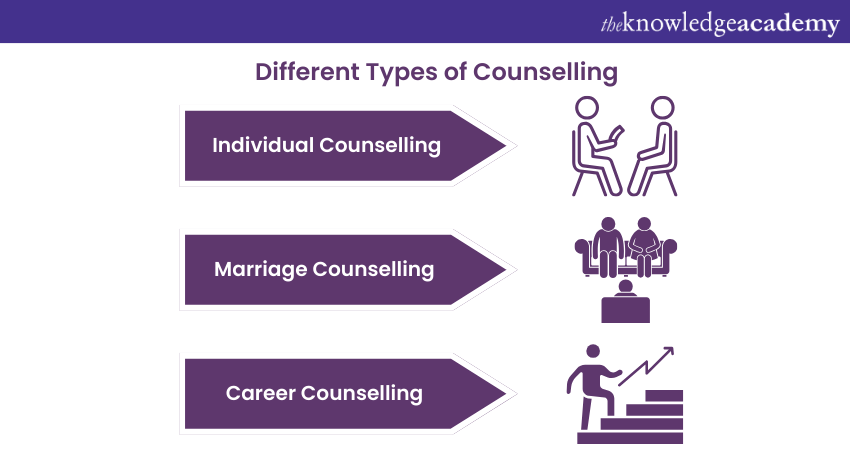relationship therapy online: Everything You Need to Know
Wiki Article
Exploring the Advantages of Virtual Therapy in Modern Mental Healthcare
The surge of virtual therapy marks a significant shift in psychological healthcare. It uses enhanced availability, enabling individuals from diverse backgrounds to look for assistance without geographical constraints. Flexibility in organizing accommodates varying way of lives, while the convenience of home can cultivate visibility. The ramifications of these modifications extend beyond plain ease. The advancing landscape of therapy elevates important concerns concerning its lasting effects on individual involvement and therapy end results.Enhanced Availability for All
Traditional therapy frequently offers barriers such as geographical location and scheduling conflicts, virtual therapy substantially enhances accessibility for people looking for psychological health and wellness support. By getting rid of the demand for physical travel, virtual therapy allows clients from remote locations or those with flexibility challenges to get in touch with qualified specialists. This mode of therapy can reach underserved populaces that may do not have local mental health and wellness resources, thereby attending to differences in accessibility to care. Additionally, virtual platforms can cater to varied needs, offering services in several languages and fitting various cultural backgrounds. Clients can engage with a more comprehensive series of experts, supplying them with alternatives that line up with their details requirements and preferences. This increased access fosters a more inclusive environment, enabling individuals to seek assistance without the stigma usually related to in-person check outs. Generally, virtual therapy stands for a considerable improvement in making mental healthcare much more available to all.Adaptability in Scheduling Sessions

As virtual therapy continues to gain grip, its integral flexibility in organizing sessions proves to be a considerable advantage for numerous people. Unlike conventional in-person therapy, virtual therapy permits clients to pick session times that finest fit their personal and specialist commitments. This adaptability suits those with requiring work routines, household responsibilities, or various other dedications that can make going to physical consultations challenging.
Moreover, clients can conveniently reschedule or adjust their sessions as required, lowering the stress connected with inflexible visit systems. The availability of various time slots throughout the week, including evenings and weekends, further enhances access. This flexibility not just urges consistency present however additionally fosters a higher commitment to the therapeutic procedure. Inevitably, the adaptability in scheduling sessions stands for a transformative shift in mental health and wellness treatment, equipping individuals to prioritize their health without sacrificing other aspects of their lives.
Comfort of a Familiar Atmosphere
The comfort of an acquainted setting considerably enhances the effectiveness of virtual therapy for lots of customers. Taking part in therapy from the security of their own homes permits individuals to really feel more secure, decreasing anxiety that might accompany standard in-person sessions. This experience can promote open communication, allowing clients to share their ideas and feelings more easily.Additionally, the existence of personal items and the ability to control their environments can add to a sense of protection and relaxation. Clients commonly report that remaining in a comfortable space permits them to concentrate much more on the healing process as opposed to the establishing itself.
In addition, the informal nature of virtual sessions can help liquify barriers that may exist in a traditional workplace atmosphere, fostering a much deeper connection with therapists. Overall, the convenience of familiar surroundings plays an essential role in improving the therapeutic experience and effectiveness for lots of people seeking psychological health and wellness assistance.
Larger Variety Of Healing Choices
A wider series of healing alternatives appears with virtual therapy, permitting customers to access various techniques that may not be practical in typical settings. This versatility enables people to explore diverse methods such as cognitive-behavioral therapy, mindfulness techniques, art therapy, and even specialized treatments like trauma-informed treatment or dialectical habits therapy.Moreover, clients can select from a broader range of specialists, including those who specialize in particular niche locations or certain populations, improving the likelihood of locating a suitable match. Virtual platforms frequently offer accessibility to team therapy sessions, assistance areas, and workshops that may be geographically not available or else.
This selection encourages customers to participate in their recovery process according to their distinct preferences and needs, potentially enhancing inspiration and commitment to treatment. Because of this, the landscape of mental healthcare comes to be much more comprehensive and versatile, dealing with a larger selection of specific experiences and obstacles.
Lowered Preconception Surrounding Therapy
Accessing therapy through virtual platforms adds to a significant reduction in the stigma traditionally related to psychological healthcare. By offering a very discreet and personal setting, virtual therapy permits individuals to seek help without the worry of being judged or identified. This anonymity charms to those who may otherwise hesitate to seek in-person therapy as a result of social assumptions surrounding psychological health.In addition, as the occurrence of virtual therapy increases, it normalizes the conversation around mental wellness, making it a much more acceptable part of everyday life. Individuals frequently feel extra comfy discussing their experiences on the internet, promoting openness and minimizing sensations of seclusion. The accessibility of these solutions additionally motivates a broader market to engage with psychological health and wellness resources, fostering a culture of assistance as opposed to shame. Eventually, the surge of virtual therapy plays a crucial function in improving perspectives towards seeking assistance, adding to a more approving society pertaining to mental health and wellness difficulties.
Cost-Effectiveness and Price

Decreased Session Costs
Numerous individuals seeking mental health support discover that virtual therapy greatly minimizes session expenses contrasted to typical in-person alternatives. The elimination of travel expenditures and time off job typically adds to overall cost savings. In addition, several virtual specialists supply affordable prices because of reduced overhanging prices connected with preserving a physical office. low cost therapy This change in expenditure allows clients to gain access to high quality psychological wellness solutions without the financial stress that may come with standard therapy. For lots of, this cost enables more constant sessions, which can improve treatment end results. Therefore, virtual therapy not only democratizes access to mental health and wellness care however also offers a lasting monetary design that aligns with customers' spending plans, making mental health and wellness support a lot more obtainable for a wider audience.Expanded Gain Access To Choices
While typical therapy typically presents logistical obstacles, virtual therapy significantly expands access options for people seeking psychological healthcare. By getting rid of the requirement for traveling and permitting versatile scheduling, virtual therapy accommodates diverse way of lives and commitments. This accessibility is specifically helpful for those in remote areas or with flexibility obstacles. In addition, the cost-effectiveness of virtual therapy decreases financial strain, making psychological health services extra reachable. Several platforms offer tiered pricing or moving range charges, advertising cost. Insurance coverage business increasingly identify virtual therapy, more improving its monetary availability. Generally, virtual therapy not just widens the extent of that can receive treatment however likewise addresses financial obstacles, making mental health and wellness support extra comprehensive and obtainable for all.Improved Continuity of Care
Enhanced connection of treatment becomes a significant advantage of virtual therapy in contemporary psychological healthcare. This approach enables patients to keep consistent communication with their specialists, no matter geographical barriers or scheduling problems. low cost therapy. The adaptability of virtual sessions promotes regular check-ins, which are essential for keeping track of progress and adjusting treatment intends as essentialFurthermore, electronic health records and telehealth platforms facilitate smooth information sharing amongst treatment suppliers. This interconnectedness ensures that all professionals involved in an individual's care are upgraded on therapy advancements, causing even more coordinated and effective treatments.
Clients typically experience reduced stress and anxiety and boosted interaction due to the comfort of accessing therapy from acquainted settings. Such accessibility enhances adherence to therapy routines, ultimately enhancing outcomes - low cost therapy. To sum up, virtual therapy not just bridges voids in psychological wellness solutions however also fortifies the continuity of care, a critical component of successful therapeutic partnerships
Frequently Asked Concerns
Just How Does Virtual Therapy Make Certain Confidentiality and Privacy for Clients?
The existing question addresses the actions virtual therapy employs to safeguard client confidentiality. Using encrypted systems, safe logins, and conformity with policies like HIPAA, virtual therapy guarantees that sensitive info continues to be private and hard to reach to unapproved people.Can I Switch Therapists Easily in Virtual Therapy?
Switching therapists in virtual therapy is typically straightforward. Clients can connect their desire for a change through the system, enabling adaptability in finding a much better suit without the logistical obstacles of in-person appointments.What Modern technology Do I Need for Virtual Therapy Sessions?
To take part in virtual therapy sessions, an individual typically requires a trusted web connection, a computer system or smartphone with a video camera and microphone, and access to a secure video conferencing system specified by their therapist.
Are Virtual Therapy Sessions as Effective as In-Person Procedure?
Current research studies show that virtual therapy sessions can be equally reliable as in-person sessions, depending on the individual's preferences and conditions. Elements such as convenience and ease of access may enhance the total therapeutic experience for some clients.What Should I Do if I Experience Technical Issues Throughout a Session?
If technological concerns arise during a session, one should smoothly interact the problem to the specialist, effort to reconnect, or button to a backup technique. Perseverance and adaptability are crucial in handling these interruptions.Report this wiki page